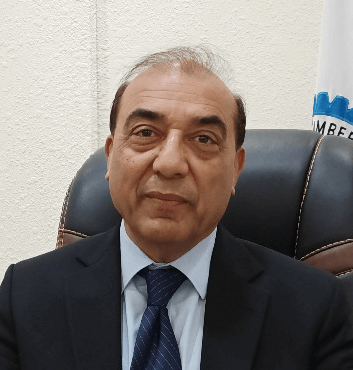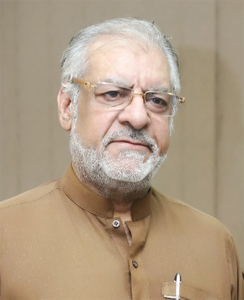Politics of confrontation: Is it hurting the economy and dampening the business sentiment?
“The economy has never been a priority for any government in Pakistan. The political parties are merely concerned with breaking or making governments.”

President Karachi Chamber of Commerce and Industry (KCCI)
Despite the political tussle that the country has experienced over the last year, local, export markets and specially the stock market have done well — they have gone up right from September/October last year. Export markets have not been negatively affected since there has been no disruption in production; neither the workers nor owners have faced trouble in running their industries.
It has been a year since the PDM movement began. The scenario is not new in Pakistan, although the media have made much of it. However, foreign direct investment may have suffered.
The government, on its part, is trying to create a feel-good impression through the media. However, industry has remained the same over the last four years, except for the one year when government intervened and started restricting imports and the construction sector. It also changed the interest rate from 6 percent to 13 percent. Therefore, in actuality, the government dented the economy itself. Realising the error, the government has reversed the interest rate back to 6 percent, and allowed the construction industry to function as it did during previous governments, while also offering an amnesty — a no questions asked kind of a situation. Therefore, the policies of this government are more or less the same as those of previous governments.
The government reckons that inflation is around 9 percent, but to me, inflation in Pakistan is different compared to many other countries. This is because our non-food inflation is on the lower side, and our food inflation 6 percent — on a high — which is bad for the economy and would affect the poor the most, who have to fill their stomachs at the end of the day. Hence, it can be said that inflation is definitely bad news for the people and if it is not handled properly, there will be downsides to it in the form of shortages of sugarcane, cotton, and all agricultural products, making way for further unemployment.
Some are of the view that the current Senate Elections results — with finance minister Hafeez Sheikh losing — would matter to the IMF, but I beg to differ. According to me, the IMF is not concerned if an elected or unelected person grabs a seat in senate or parliament. The results make no difference to the IMF. However, in general, there has been trouble where the courts have ruled that an unelected individual cannot serve as a minister.
I would like to add that the economy has never been a priority of any government in Pakistan. The political parties are merely concerned with breaking or making governments. This applies to both, the opposition and the ruling party.
The ruling government hardly has a vision for the economy; they have little to no ideology and that holds true for other mainstream political parties as well. The only political party that had or has some semblance of a political ideology is the Pakistan Peoples Party; they seem to have a basic understanding of politics. On the other hand, when the PTI was running its political campaign for the elections, they mainly and primarily spoke of getting rid of the corruption of the Sharif and Zardari governments. This means that their bid to gain power was not based on the economy or any concrete vision, but relied mainly on creating animosity towards the previous governments. This approach is damaging for a political and democratic system — for any country. The potential political instability damages foreign investments and affects the confidence of domestic investors and industrialists.
There needs to be a robust economic plan to take the country forward. Both the opposition and the ruling government should sit together and formulate a consensus based long-term charter for the economy. In the short-term, they should come up with a bold industrial policy, giving tax relief to the industries, just as they did for the construction sector. The government needs to buck up, stop maligning the country’s institutions, and create economic reforms instead, as we see them mostly embroiled in rhetoric or power politics rather than focusing on the economy.
“We see that there is inflation because of the existing corruption. If the government is able to fulfil its targets and control corruption, it would achieve something that hasn’t been done in the last 50 years.”

Head of Anjuman Tahjirin
In the past few months, there was a strict lockdown because of which people suffered material losses, and it seemed that it would take time for things to stabilise. However, we saw that the textile and garment sector witnessed a boom and other export industries also took a relatively better turn.
However, political instability and talk of another lockdown have instilled fear within all the provinces. These factors taken together, affect the economic situation negatively. According to me, things can get better if political instability is controlled.
I must also add that the aims of this government are much better than those of previous governments and we may call them resolute and tough, to a large extent. This government wants to get rid of corruption prevalent in the country and crush the corrupt mafias. This is a difficult task. Every sector in the country suffers from corruption. We see that there is inflation because of the existing corruption. If the government is able to fulfil its targets and control corruption, then it would achieve something that hasn’t taken been done in the last 50 years. Although this depends on the government being able to curb mafias and their corrupt, practices that we see in all sectors.
The corrupt mafias are not scared of the courts or of the government; these are battle-hardened people, because of which I see this as a monumental task for the present government.
On the other hand, the government’s measures for the export industry are commendable. The dollar rate had risen previously but has been controlled along with imports. The government has also controlled the trade deficit to a large extent while establishing new industries. Moreover, investments have increased. Establishing new industries is a very good sign that brings hope to the industrialists and the workforce. If the government succeeds in controlling inflation, especially with regard to the basic needs of people such as food staples, it will have done well.
Moreover, whenever there is political instability, it affects the economy, stock markets suffer, investors are disappointed and may lose hope. The media today is insinuating that the current government is under pressure and would collapse any given day with mainstream parties ganging up against it. This will definitely have a detrimental effect, if the government is unable to handle the current rhetoric. If the government tries to handle the situation in a focused manner, trouble could be forestalled. The election of the PTI’s nominees for Chairman and Deputy Chairman of the Senate is good news for exporters, investors and traders. When any government, good or bad falls, it affects the economy and it takes considerable time for it to stabilise. If this government falls, we will face an impasse.
In my view, Pakistan could become a haven for foreign investors. Karachi could soon become the economic hub, if federal policies are formalised and are stable.
Lastly, the current government has a commendable vision. In Pakistan, most people in power have been corrupt and there is a deficit of sincere politicians and leaders in our society, in general. The PTI government has people who want to take the country forward, while the mainstream traditional parties include discredited individuals. Hopefully, the well-intentioned people in PTI would turn things around and achieve the desired goals. Over the next two to three years, we can hope for betterment on the economic side.
“Because of political unrest, the government might hesitate to take tough measures, since there will be some pressure from PDM with the long march commencing from 26 March.”

Chief Economist and Director Research at Topline Securities
If we compare today’s situation to two months ago, the economic situation has worsened. For example, current accounts were in surplus, inflation was easing off but has risen to 9 percent, while international oil prices have increased. Even the current account deficit is expected to exist for another three months. Primary factors that have negatively impacted the economy are inflation and an increase in international oil prices.
An important development has been the IMF and Pakistan agreeing to continue with the programme. Because of this programme, the government has increased power tariffs up to 30 percent. There have also been a few amendments with respect to the State Bank so that it becomes autonomous and independent. Once the executive board meeting takes place at the end of this month, Pakistan will be able to get 500 million dollars. In June there will be a further increase in the power tariff and gas prices may increase. All this will add to inflation.
The other important thing is that the IMF has trimmed down this year’s revenue collection targets. However, the target for next year is Rs6 trillion. To achieve this, the government will have to increase taxes with the next budget. This would be an important move on the part of the current government.
From the economy’s perspective, the next two to three months are a little tricky and challenging for the government. Because of political unrest, the government might hesitate to take tough measures, since there will be some pressure from PDM with the long march commencing from 26 March. Hence the IMF, international oil prices, and political unrest may together bear a negative impact.
The PTI government is markedly different from the previous government. The ruling government is focused on welfare and social spending such as the Ehsaas programme during Covid, whereas the previous government was more business-friendly and business oriented which had a trickle-down effect on the masses. The present government also aims to bring relief to the marginalised classes, hence improving the poverty index. For this measure, the government would face some constraints such as a decrease in the education and health budgets. Therefore, there are two schools of thoughts. One is more welfare oriented and the other, business oriented.
Generally, political unrest has a detrimental effect on local and export markets as well as the stock markets and industries. The government is responsible for policy making and if there is ambiguity, a businessman will be affected by that ambiguity while considering the changing situations every few months due to a political tussle. Investments stop coming in, which then affects policy making. When the economy is hit, it affects the stock markets.
Lastly, the upcoming few months are challenging for the government, where it will have to take difficult decisions like increasing electricity charges and the gas tariff. If the government continues doing this, it will have a positive impact on the economy. If the current government is able to sustain itself, I’m hopeful about the positive turn the economy will take.



